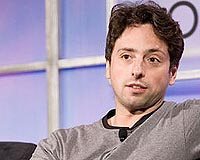| . |  |
. |
Shanghai (AFP) March 24, 2010 The trial of four employees of mining giant Rio Tinto ended in China without an immediate verdict on Wednesday as Australia warned the world was watching the outcome of the highly sensitive case. Australian executive Stern Hu and three other Chinese staff had been in the dock in a Shanghai court since Monday on charges of accepting bribes totalling around 13 million dollars and stealing trade secrets. All four defendants have pleaded guilty to taking money, and one admitted to commercial espionage, defence lawyers say, although the accused have challenged aspects of the charges. A court spokeswoman declined to say when there would be a verdict. During the three-day trial in China's financial centre, the court heard evidence that millions of yuan in bribes had been stuffed into bags and boxes for the accused, according to press reports. Australian Prime Minister Kevin Rudd said the world was watching the trial, which has been widely seen as a test of the rule of law in China and has raised questions about doing business in the world's third-largest economy. "It is not just Australia that is watching this trial very closely, but I think the eyes of the world are focused on the way in which this trial is conducted and what happens as a result of it," Rudd said. Australian Foreign Minister Stephen Smith chastised China for locking the country's diplomats out of the courtroom during the hearings on the commercial espionage allegations and said he was not expecting a verdict for days. Canberra said in a statement that consular officers would be present when the court reconvened to announce its verdict. Hu, the head of the Anglo-Australian mining giant's Shanghai office, and the three Chinese men -- Wang Yong, Liu Caikui and Ge Minqiang -- have all pleaded guilty to taking money, said Wang's attorney Zhang Peihong. But he said there had been "intense debates in the court" about the amounts involved. Zhang said one man had pleaded guilty to the charges of stealing trade secrets, but declined to identify him, saying only that it was not his client. Another lawyer on Wang's defence team, Yang Bailin, said the identity of the man who pleaded guilty to the secrets charge was "confidential". Wang strongly objected to the bribery allegations, saying he had borrowed the money from one of China's richest men, Du Shuanghua, the state-run National Business Daily said. Prosecutors said Du, the former head of Shandong-based Rizhao Iron & Steel group, had contradicted Wang's account, saying he had paid the Rio employee nine million dollars for preferential treatment, Zhang said. The court rejected requests by defence lawyers to call witnesses, including Du, to testify in court and face cross-examination, Yang said. The court heard that tens of millions of yuan were put in cardboard boxes, locked money boxes, "reusable" bags and delivered by hand to Hu and others, according to the paper. Australia's government has said Hu "made some admissions" in court, without elaborating. Rio, the world's third-biggest miner, has previously said it was not aware of any wrongdoing by its employees. The four were arrested in July during contentious iron ore contract talks between top mining companies and the steel industry in China, the world's largest consumer of the raw material. Those talks eventually collapsed. The initial hearings related to the bribery allegations were restricted to select state media outlets. But the case moved behind closed doors Tuesday for the commercial espionage charges and even Australian diplomats were excluded from the courtroom. "We regret that and have made that point clear to Chinese officials," Smith told national broadcaster ABC, adding that it may be a "matter of days" before the verdict is issued. China has insisted the case was being handled in accordance with law and consular agreements, and that it is keeping Australia informed about the proceedings. Vivienne Bath, who heads the Centre for Asian and Pacific Law at the University of Sydney, told ABC radio that holding parts of the trial behind closed doors "makes it impossible to tell whether it was a fair trial or not". Under Chinese law, the toughest sentence for non-government officials convicted of accepting bribes is 15 years in prison, Zhang said. The maximum penalty for stealing commercial secrets is seven years, said Tao Wuping, the lawyer defending Liu.
Share This Article With Planet Earth
Related Links Global Trade News
 Google Says China Top Priority As GoDaddy Joins Exodus
Google Says China Top Priority As GoDaddy Joins ExodusLondon (AFP) March 24, 2010 Google co-founder Sergey Brin said in an interview published Wednesday that Chinese regulations which prevent the Web giant from being competitive in China should be considered a "trade barrier." Brin, in comments published by the British newspaper The Guardian, said human rights issues should be given "equal time" with trade concerns and the US administration should make the censorship row ... read more |
|
| The content herein, unless otherwise known to be public domain, are Copyright 1995-2010 - SpaceDaily. AFP and UPI Wire Stories are copyright Agence France-Presse and United Press International. ESA Portal Reports are copyright European Space Agency. All NASA sourced material is public domain. Additional copyrights may apply in whole or part to other bona fide parties. Advertising does not imply endorsement,agreement or approval of any opinions, statements or information provided by SpaceDaily on any Web page published or hosted by SpaceDaily. Privacy Statement |